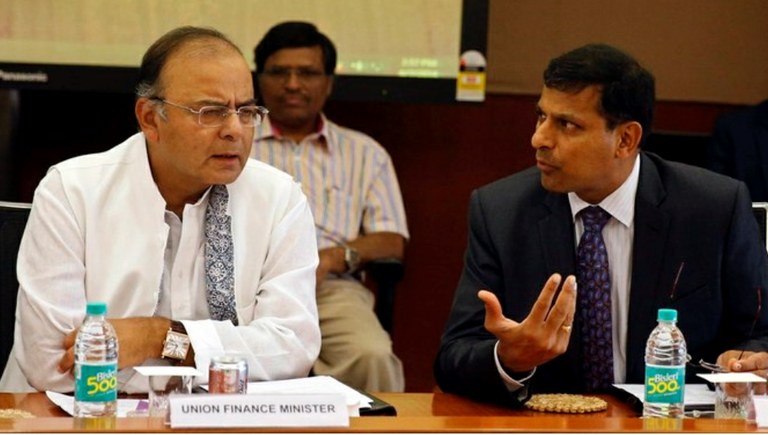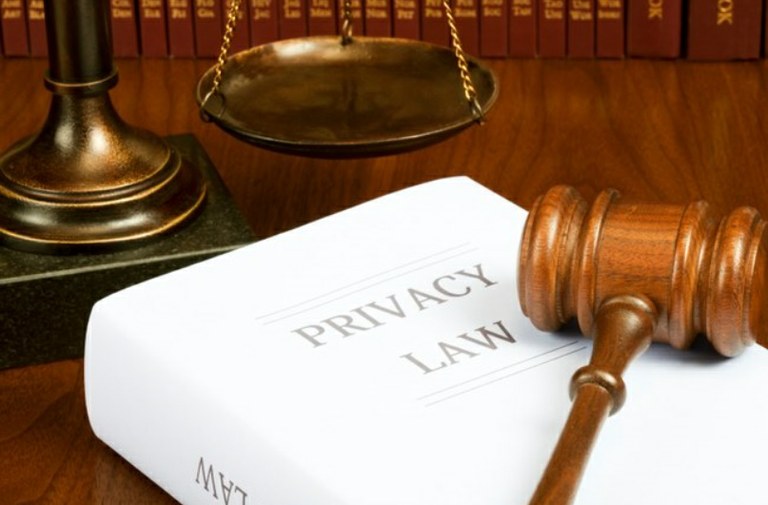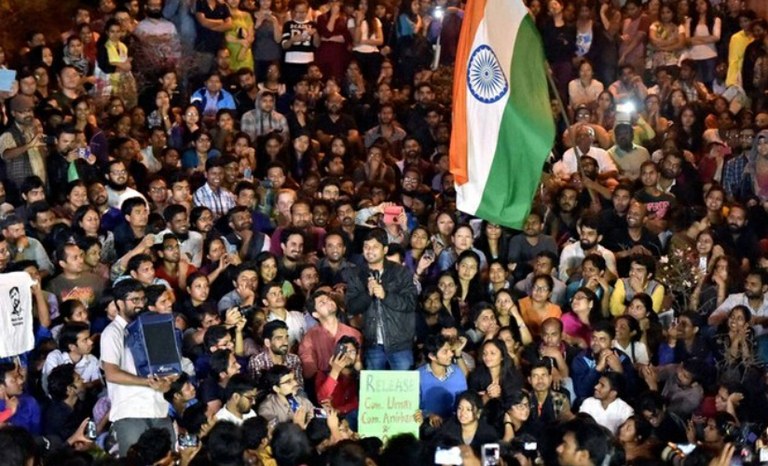All Blogs
- Censure for its process
- Its (in)compatibility with fundamental rights
- The failure to incorporate the suggestions of the Yashwant Sinha-led Standing Committee to UPA’s NIDAI Bill
- The possibility of surveillance that it presents
- The lack of measures to protect personal information
- Its inadequate privacy safeguards
- The questions around the realisation of its stated purpose.
-
Institute a formal redressal system and policy with regard to sexual harassment within ICANN. The policy must be displayed on the ICANN website, at the venue of meetings and made available in delegate kits.
-
Institute an Anti Sexual Harassment Committee that is neutral and approachable. Merely having an ombudsman who is a white male, however well intentioned, is inadequate and completely unhelpful to the complainant. The present situation is one where the ombudsman has no effective power and only advises the board.
-
Conduct periodic gender and anti sexual harassment training of the ICANN board to help them better understand, recognise and address instances of sexual harassment.
-
Conduct periodic gender and anti sexual harassment training for the ombudsman even if he/she will not be the exclusive point of contact for complainants as the ombudsman forms an important part of community and participant engagement
-
Conduct periodic gender sensitisation for the ICANN community.
Will Aadhaar Act Address India’s Dire Need For a Privacy Law?
The article was published by Quint on March 31, 2016.
 |
|---|
The passage of the Aadhaar (Targeted Delivery of Financial and Other Subsidies, Benefits and Services) Act, 2016 (will hereby be referred to as “the Act”) has led to flak for the government from privacy advocates, academia and civil society, to name a few.
To my mind, the opposition deserves its fair share of criticism (lacking so far), for its absolute failure to engage with and act as a check on the government in the passage of the Act, and the events leading up to it.
The government’s introduction of the Act as a ‘money bill’ under Article 110 of the Constitution of India (“this/the Article”) is a mockery of the constitutional process. It renders redundant, the role of the Rajya Sabha as a check on the functioning of the Lower House.
Article 110 limits a ‘money bill’ only to six specific instances: covering tax, the government’s financial obligations and, receipts and payments to and from the Consolidated Fund of India, and, connected matters.
The Act lies well outside the confines of the Article; the government’s action may attract the attention of the courts.
Political One-Upmanship
 |
|---|
| Finance Minister Arun Jaitley (left) listens to Reserve Bank of India (RBI) Governor Raghuram Rajan. (Photo: Reuters) |
In the past, the Supreme Court (“the Court”) has stepped into the domain of the Parliament or the Executive when there was a complete and utter disregard for India’s constitutional scheme. In recent constitutional history, this is perhaps most noticeable in the anti-defection cases, (beginning with Kihoto Hollohan in 1992); and, in the SR Bommai case in 1994, on the imposition of the President’s rule in states.
In hindsight, although India has benefited from the Court’s action in the Bommai and Hollohan cases, it is unlikely that the passage of the Aadhaar Act as a ‘money bill’, reprehensible as it is, meets the threshold required for the Court’s intervention in Parliamentary procedure.
Besides, the manner of its passage, the Act warrants
Instead, a part of the Aadhaar debate has involved political one-upmanship between the Congress and the BJP, pitting the former’s NIDAI Bill against the latter’s Aadhaar Act.
While an academic comparison between the two is welcome, its use as a tool for political supremacy would be laughable, were it not deeply problematic, given the many serious concerns highlighted above.
Better Than UPA Bill?
 |
|---|
| The Act may have more privacy safeguards than the earlier UPA Bill. (Photo: iStockphoto) |
And while the Act may have more privacy safeguards than the earlier UPA Bill, critics have argued that they not up to the international standard, and instead, that they are plagued by opacity.
Additionally, despite claims that the Act is a significant improvement over the UPA Bill, it fails to address concerns, including around the centralised storage of information, that were raised by civil society members and others.
Perhaps most problematically, however, the Act takes away an individual’s control of her own information. Subsidies, government benefits and services are linked to the mandatory possession of an Aadhar number (Section 7 of the Act), effectively negating the ‘freedom’ of voluntary enrollment (Section 3 of the Act). This directly contradicts the recommendations of the Justice AP Shah Committee, before whom the Unique Identification Authority of India had earlier stated that enrollment in Aadhaar was voluntary.
To make matters worse, the individual does not have the authority to correct, modify or alter her information; this lies, instead, with the UIDAI alone (Section 31 of the Act). And the sharing of such personal information does not require a court order in all cases.
 |
|---|
| Kanhaiya Kumar speaking in JNU on 3 March 2016. (Photo: PTI) |
These recent events around Aadhaar have only underscored the dire urgency for comprehensive privacy legislation in India and, the need to overhaul our data protection laws to meet our constitutional commitments along with international standards.
8 Challenges In Growing Indian-Language Wikipedias
While speaking at BHASHA: Indian Languages Digital Festival, a day-long discourse at New Delhi on Indian languages and their state in new media, especially digital platforms, I touched upon Wikipedia in Indian languages. Most people, in fact, do not even know that Wikipedia exists in many Indian languages.
TRAI Consultation on Differential Pricing for Data Services - Post-Open House Discussion Submission
The Centre for Internet and Society sent this submission to the Telecom Regulatory Authority of India (TRAI) following the Open House Discussion on Differential Pricing of Data Services, held in Delhi on February 21, 2016.
Report on eSpeak with NVDA Screen Reader and Assistive Technology for Visually Challenged
The Centre for Internet & Society, Bangalore and National Association for the Blind, New Delhi in collaboration with Centre for Differently Abled Persons, Bharathidasan University, Tiruchirappalli organized a workshop on eSpeak with NVDA Screen Reader and Assistive Technology for Visually Challenged at Centre for Differently Abled Persons, Bharathidasan University, Tiruchirappalli on January 21, 2016.
Consultation on 'National Geospatial Policy' - Notes and Submission
The Department of Science and Technology, Government of India, has constituted a National Expert Committee for developing a draft National Geospatial Policy (NGP) to provide appropriate guidelines for collection, analysis, use, and distribution of geospatial information across India, and to assure data availability, accessibility and quality. A pre-drafting consultation meeting for the NGP was organised in Delhi on February 03, 2016. Ms. Anubha Sinha represented CIS at the meeting, and shares her notes.
Eight Challenges That Indian-Language Wikipedias Need to Overcome
Even after a decade of existence, Indian language Wikipedias are not yet known to many Indian language speakers. Wikipedia, being the largest available encyclopedia made in the human history, it what it is today because of the hundreds and thousands of volunteer-editors. But while native-language Wikipedias are becoming game-changers in other corners of the world, the scenario in India is skewed. In my experience, here are a number of challenges that Indian-language Wikipedias are currently facing.
8 Challenges for Improving Indian Language Wikipedias
After more than 10 years in existence, the Indian-language Wikipedias still are not known to many Indian language speakers. Wikipedia became the largest encyclopedia in history as a result of thousands of volunteer editors.
Report of the 30th Session of the WIPO SCCR by the Centre for Internet & Society
This report was edited by Nehaa Chaudhari, Programme Officer; compiled with assistance from Nisha S.K., Administrator, and, Aarushi Bansal, Amulya P., and Saahil Dama, interns.
Too Clever By Half: Strengthening India’s Smart Cities Plan with Human Rights Protection
The data involved in planning for urbanized and networked cities are currently flawed and politically-inflected. Therefore, we must ensure that basic human rights are not violated in the race to make cities “smart”.
CIS' Statement on Sexual Harassment at ICANN55
The Centre for Internet and Society
Statement on Sexual Harassment at ICANN55
The Centre for Internet and Society (“CIS”) strongly condemns the acts of sexual harassment that took place against one of our representatives, Ms. Padmini Baruah, during ICANN 55 in Marrakech. It is completely unacceptable that an event the scale of an ICANN meeting does not have in place a formal redressal system, a neutral point of contact or even a policy for complainants who have been put through the ordeal of sexual harassment. ICANN cannot claim to be inclusive or diverse if it does not formally recognise a specific procedure or recourse under such instances.
Ms. Baruah is by no means the first young woman to be subject to such treatment at an ICANN event, but she is the first to raise a formal complaint. Following the incident, she was given no immediate remedy or formal recourse, and that has left her with no option but to make the incident publicly known in the interim. The ombudsman’s office has been in touch with her, but this administrative process is simply inadequate for rights-violations.
Ms. Baruah has received support from various community, staff, and board members. While we are thankful for their support, we believe that this situation can be better dealt with through some positive measures. We ask that ICANN carry out the following steps in order to make its meetings a truly safe and inclusive space:
The National Privacy Principles
In this infographic, we try to break down the National Privacy Principles developed by the Group of Experts on Privacy led by the Former Chief Justice A.P. Shah in 2012.
Aadhaar Bill 2016 Evaluated against the National Privacy Principles
In this infographic, we evaluate the privacy provisions of the Aadhaar Bill 2016 against the national privacy principles developed by the Group of Experts on Privacy led by the Former Chief Justice A.P. Shah in 2012. The infographic is based on Vipul Kharbanda’s article 'Analysis of Aadhaar Act in the Context of A.P. Shah Committee Principles,' and is designed by Pooja Saxena, with inputs from Amber Sinha.
Vulnerabilities in the UIDAI Implementation Not Addressed by the Aadhaar Bill, 2016
In this infographic, we document the various issues in the Aadhaar enrolment process implemented by the UIDAI, and highlight the vulnerabilities that the Aadhaar Bill, 2016 does not address. The infographic is based on Vidushi Marda’s article 'Data Flow in the Unique Identification Scheme of India,' and is designed by Pooja Saxena, with inputs from Amber Sinha.
Salient Points in the Aadhaar Bill and Concerns
Since the release of the Aadhaar Bill, the Centre for Internet and Society has been writing a number of posts analyzing the Bill and calling out problematic areas and the implications of the same. This post is meant to contribute to this growing body of writing and call out our major concerns with the Bill.
Adoption of Standards in Smart Cities - Way Forward for India
With a paradigm shift towards the concept of “Smart Cities’ globally, as well as India, such cities have been defined by several international standardization bodies and countries, however, there is no uniform definition adopted globally. The glue that allows infrastructures to link and operate efficiently is standards as they make technologies interoperable and efficient.
Sexual Harassment at ICANN
Padmini Baruah represented the Centre for Internet & Society at ICANN in the month of March 2016. In a submission to ICANN she is calling upon the ICANN board for implementing a system for investigating cases related to sexual harassments.
Analysis of Aadhaar Act in the Context of A.P. Shah Committee Principles
Whilst there are a number of controversies relating to the Aadhaar Act including the fact that it was introduced in a manner so as to circumvent the majority of the opposition in the upper house of the Parliament and that it was rushed through the Lok Sabha in a mere eight days, in this paper we shall discuss the substantial aspects of the Act in relation to privacy concerns which have been raised by a number of experts. In October 2012, the Group of Experts on Privacy constituted by the Planning Commission under the chairmanship of Justice AP Shah Committee submitted its report which listed nine principles of privacy which all legislations, especially those dealing with personal should adhere to. In this paper, we shall discuss how the Aadhaar Act fares vis-à-vis these nine principles.
Privacy Concerns Overshadow Monetary Benefits of Aadhaar Scheme
Since its inception in 2009, the Aadhaar system has been shrouded in controversy over issues of privacy, security and viability. It has been implemented without a legislative mandate and has resulted in a PIL in the Supreme Court, which referred it to a Constitution bench. On Friday, it kicked up more dust when the Lok Sabha passed a Bill to give statutory backing to the unique identity number scheme.
Studying Digital Creative Industries in India: Initial Questions
This brief overview of the discourse around creative industries is an attempt to explore some ways of identifying what could be digital creative industries in India, and the questions they raise and problematize for us in terms of cultural expression, knowledge production, creativity and labour. The term ‘creative industries’ has been around for a while now, but with the advent of the digital, and with interest from different sectors, especially with a focus on policy and economic development, it would be essential to critically examine the discourse around the term, and see where it may be changing to open up new possibilities, particularly for the arts, humanities and design.

